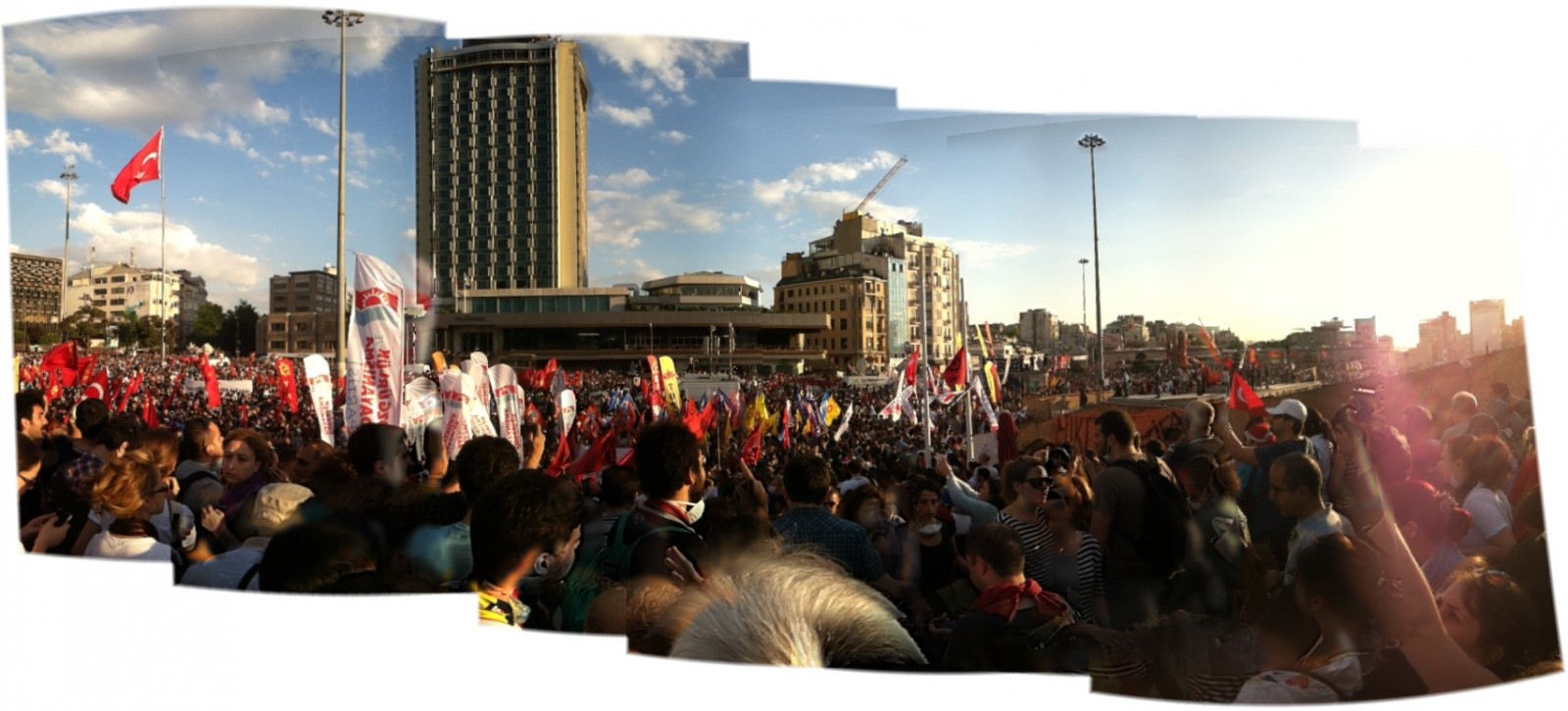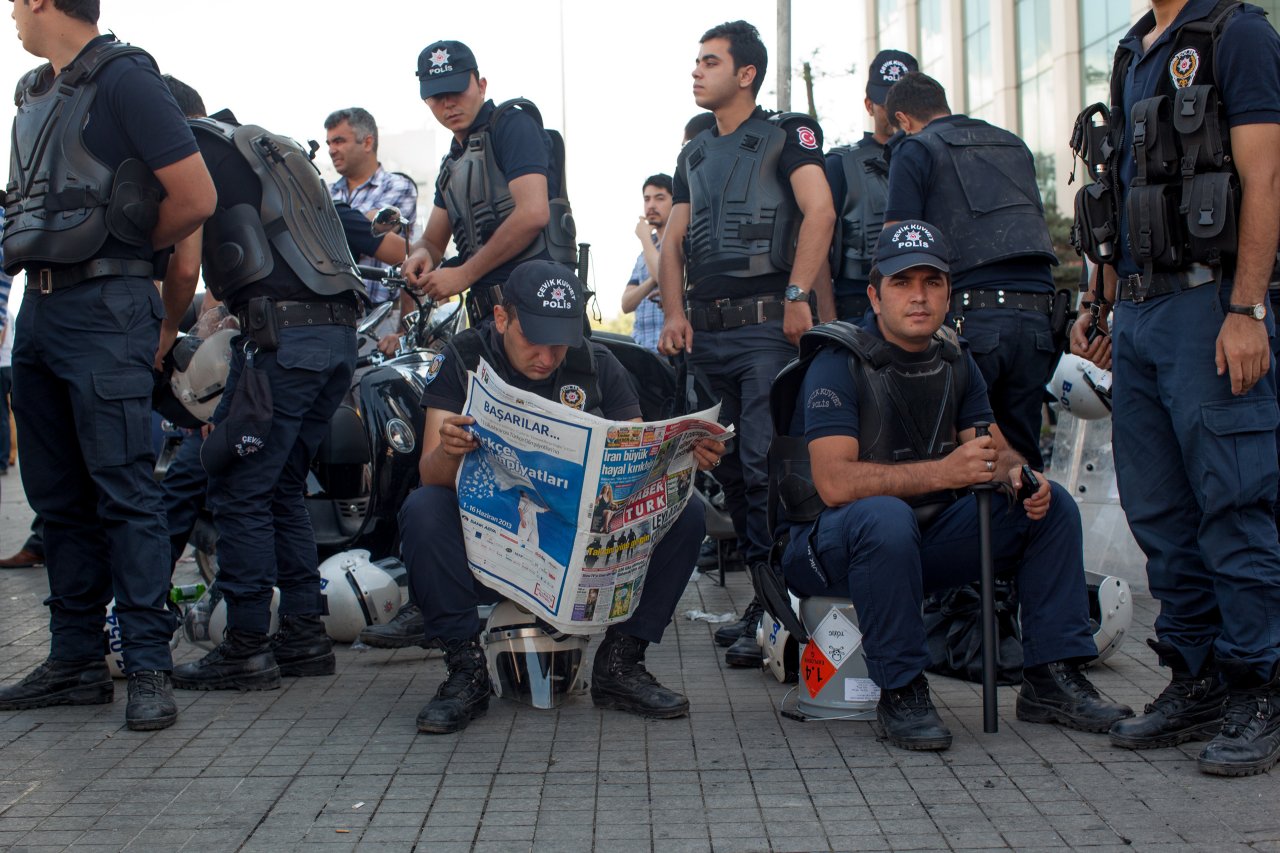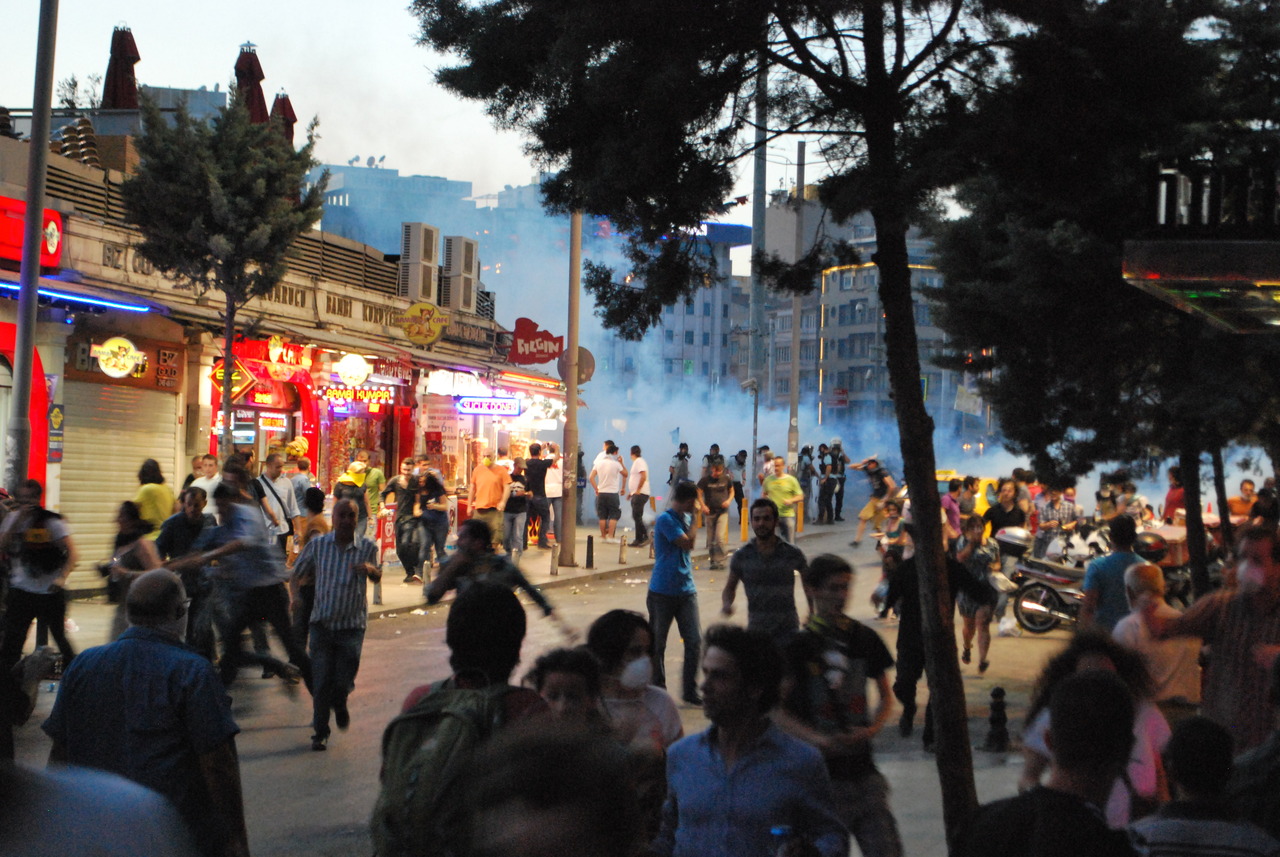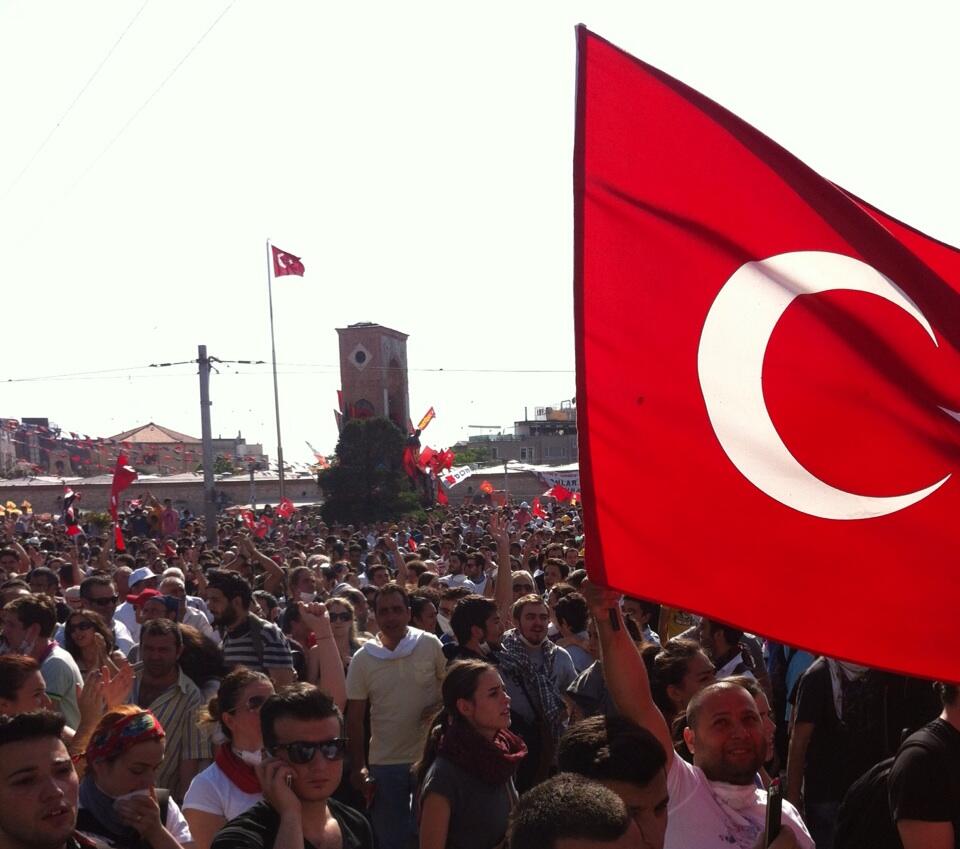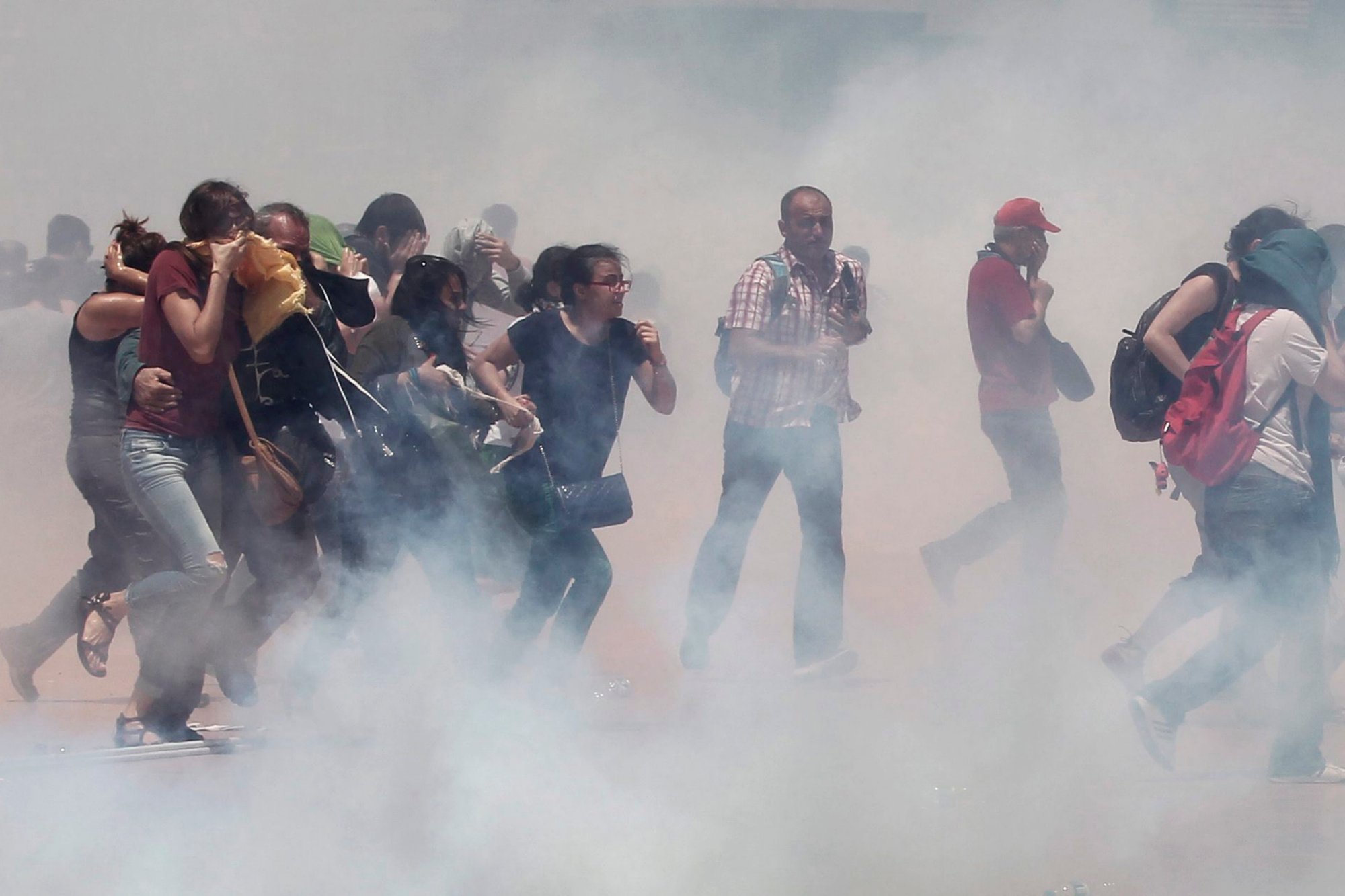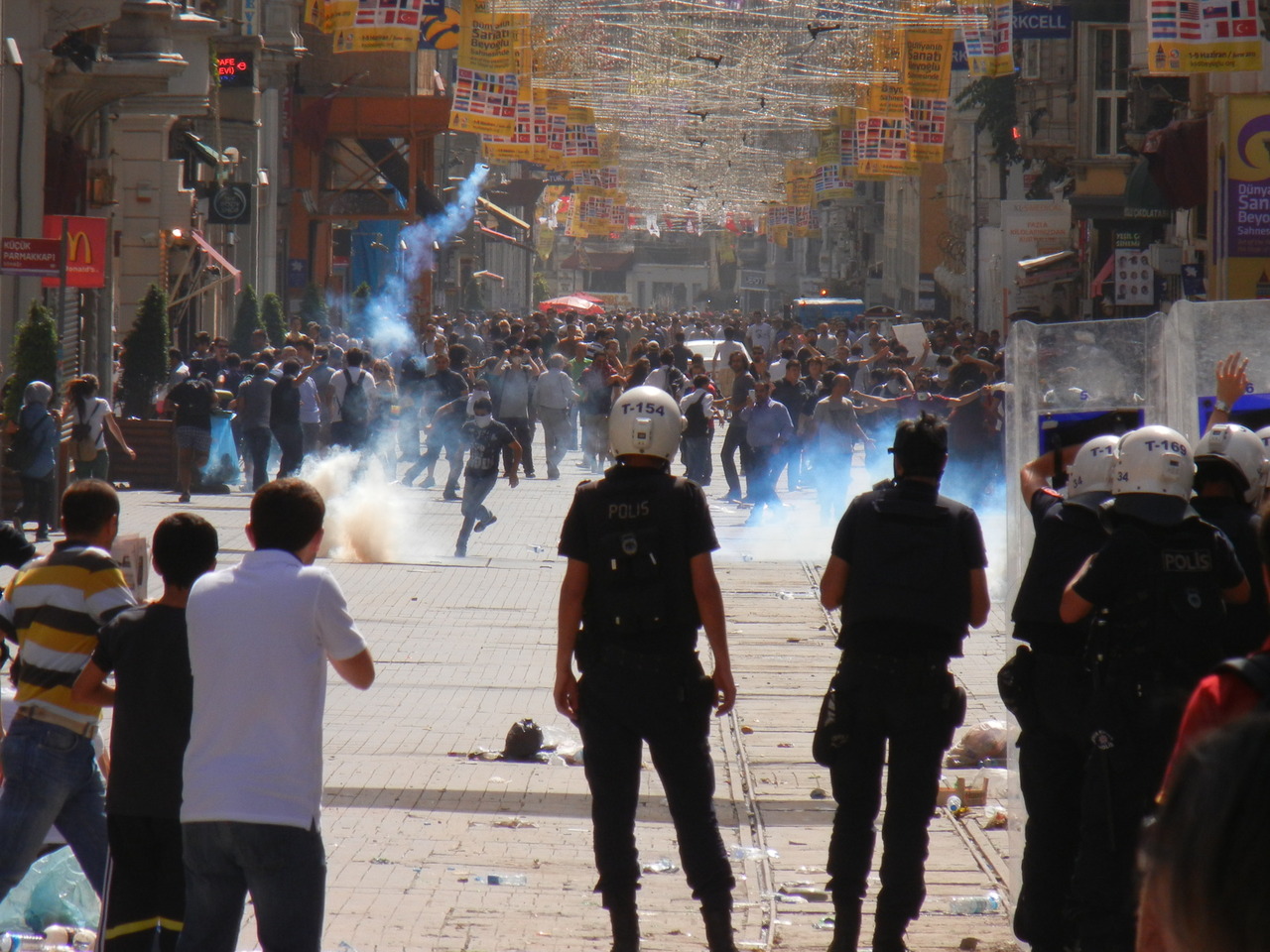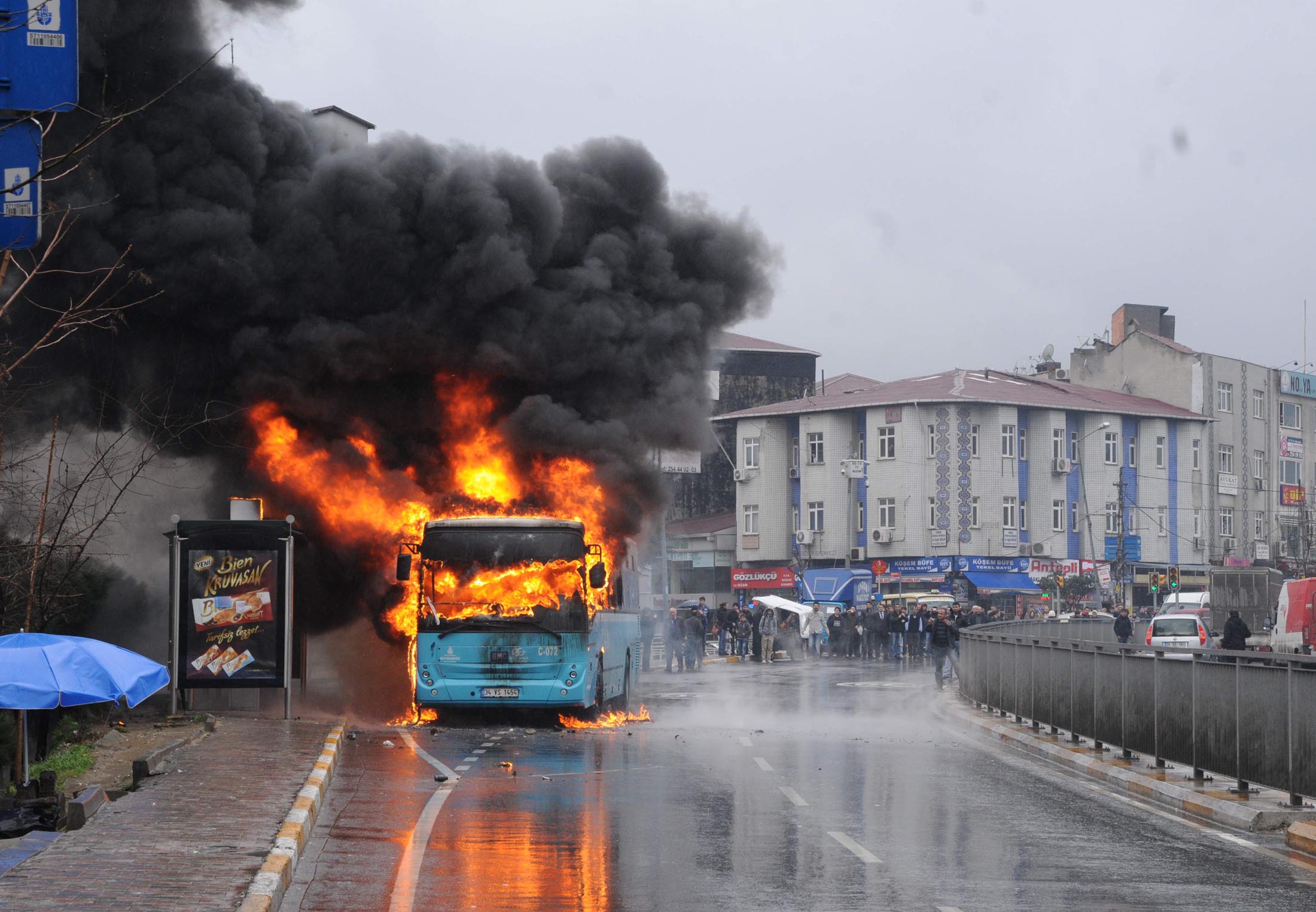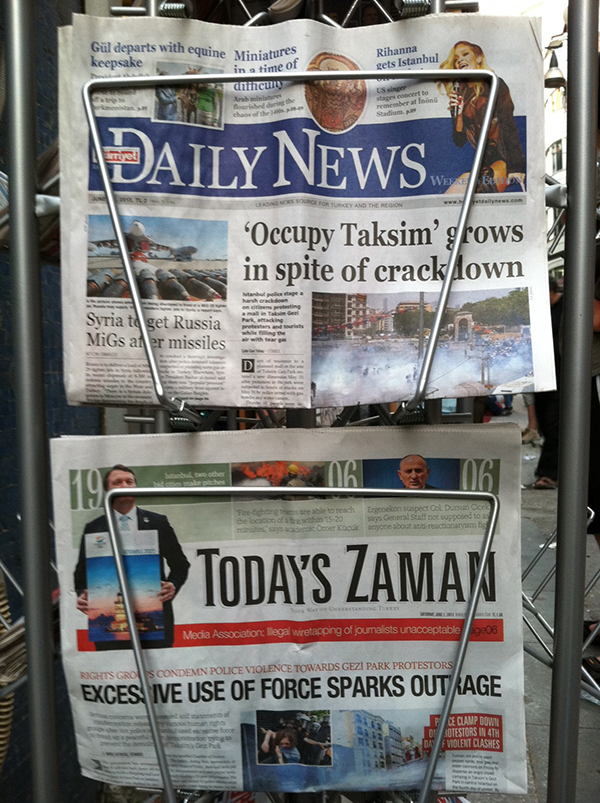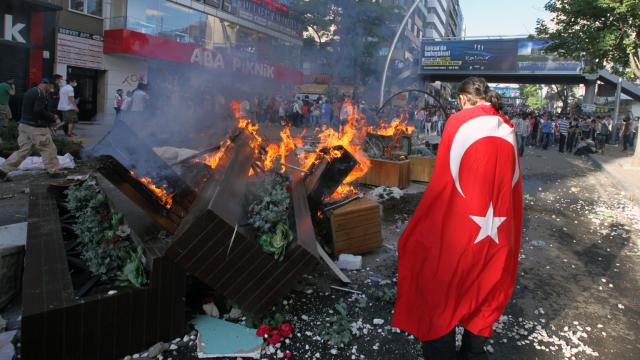
ISTANBUL - Fear has lifted.
That's the atmosphere in Istanbul and other major Turkish cities in which hundreds of thousands of demonstrators have risen up against authoritarianism.
The spark came from a small, "Occupy"-style sit-in at Gezi Park, a public park slated to be erased to make way for yet another shopping mall. A small band of citizens brought their tents and sleeping bags to prevent the bulldozers from razing the 80-year-old trees. One camper, 37-year-old trade union official Kivanc Eliacik, saw obvious parallels between Occupy protestors in the United States and the Indignados in Spain. Wandering over out of curiosity, he found himself committed to a long-running action.
Photo: Jamie Buehner
"I leave my office for just a half an hour but I am here for the three days," Eliacik told Occupy.com Thursday. "So right now I don't know how long I'm going to stay here."
Members of the encampment knew a confrontation with Istanbul's riot police was imminent, but still they felt the need to dig in.
"I don't know what they are going to do but they can come with whatever they've got," volunteered Yannis Tyrakis, a 37-year-old philosophy professor and self-described member of Istanbul's Greek minority. "But I have to keep on staying - that's my duty. It's my history, it's my park, it's my city."
The following morning, police launched a brutal raid, during which they fired tear gas into the camp after sealing off the escape routes. In the panic, scores of protestors began climbing a wall which collapsed, leading to dozens of injuries.
Later that morning, the protesters were locked out of the park but stood at the gates singing songs and slogans. Their numbers were still small - in the hundreds - but passing drivers of buses, taxis and cars were honking and waving their approval. And yet again, police moved in using pepper spray and water cannons to disperse the crowd.
But the government had miscalculated. Despite deploying thousands of riot police, demonstrators took the streets on both sides of the Bosphorous Strait, as well as in the capital of Ankara and in other cities around Turkey. Battles raged all around Istanbul, with riot police firing canisters of pepper gas at demonstrators, who, in turn, replied with small bricks and bottles.
"If you use provocative words, our people will never forgive you," Prime Minister Recep Tayyip Erdogan warned opposition leaders as violent clashes exploded across Istanbul. "If you gather 100,000 people, I can gather a million."
As the crowds surged into large groups all over the city, Taksim Square remained under a police siege. Then, just after 3 p.m. police withdrew, firing a final volley of tear gas canisters at protesters as they retreated.The violence vanished along with the police. More than a hundred thousand people packed into the square and surrounding streets.
Leftist trade unionists marched alongside Turkish nationalists who marched alongside members of the Kurdish minority. Groups of tipsy youth swaggered around with open beers chanting, "Cheers Tayyip!" as headscarved women looked on with amusement at their merriment.
"It was unequaled in the sense of civility and participation in numbers," veteran journalist Cengiz Candar told Occupy.com. "It was spontaneous and not organized by any one political party."
It was clear to many that the movement was about more than just saving a public park.
"It's about the general oppression applied by the government in every realm of the society," said Daria Cetin, a university teacher from Diyarbakir, who had joined thousands inside Gezi Park. "It could have happened because of the killings in Reyhanli, but it didn't. It happened just now. You never know when it'll happen."
So what is sparking this anti-government sentiment?
Since May 1, when police used heavy-handed tactics on even small demonstrations, the government had ordered police to violently disperse demonstrations in and around Taksim Square, historically a public platform for demonstrators of all stripes. It appeared to be an effort to sanitize the center of the city.
Erdogan's legislation of Turks' lifestyles is another factor. Just last month, he shepherded a far-reaching alcohol ban that prohibits booze within one hundred meters of a mosque or school. Given the fact that his party has overseen about 17,000 state-sponsored mosques in the past decade, that leaves little room for alcohol in city and town centers. Responding to criticism, Erdogan advised Turks to "drink at home."
But there's more at play than the polarization between secular and religious members of Turkish society. A lot of this desperation is economic. EurasiaNet reported last month that nearly 50 percent of the population lived at or below the monthly minimum wage (about $415). At the same time, sixty-three percent of bank deposits were a mere one-half percent of all account holders.
Despite this disparity, Turkey is a heavy-hitter as a regional economy. On paper it's been spared from the global financial crisis, boasting Europe's fastest growing economy in 2011. But data from the Organization for Economic Cooperation and Development tells a more complete picture: amid a survey of 36 countries, Turkey is at the bottom of the heap in terms of quality of life for a second year running.
"Analysts say a lack of education, unemployment, poverty and rapid migration are the main drivers of Turks' dissatisfaction," the WSJ reported. With daily economic reality increasingly bleak, and a smug premier telling its citizens how to live their private lives, it's no matter many Turks are taking to the street to vent.
How will all this turn out? Even Candar says it's too early to tell.
"There is a lot of resentment that's developed against the prime minister's insolent attitude with the people," he said. "It's a very sobering development."
Erdogan is no pushover. He was raised a scrappy youth in Istanbul's working class Kasimpasa - a street-fighting youth who rose through the ranks of electoral politics and didn't let a prison term check his meteoric rise to Turkey's most powerful leader since Mustafa Kemal Ataturk.
This weekend he's still swinging, professing his contempt for demonstrators, repeating his intentions of bulldozing a Kemalist culture center to replace it with a mosque and branding Twitter - a favorite tool among activists to break the stranglehold on Turkey's broadcast media - one of society's portentous ills.
"There is a problem called Twitter right now," he proclaimed Sunday, "and you can find every kind of lie there. The thing that is called social media is the biggest trouble for society right now."
It's this kind of mentality that gives demonstrators hope.
3 WAYS TO SHOW YOUR SUPPORT
- Log in to post comments

